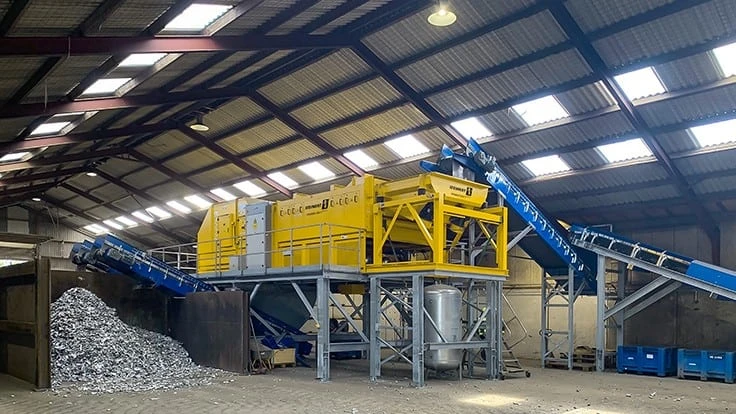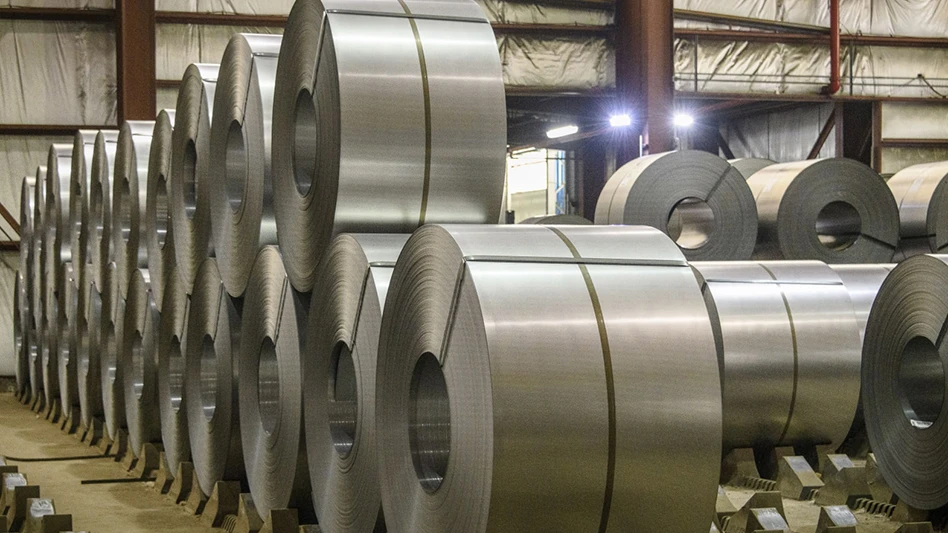
Photo provided by Steinert GmbH.
Lea Wermelin, Denmark’s Environment Minister, and Henrik Grand Petersen, CEO of Stena Recycling, have helped officially open Stena’s new X-ray Sorting Centre in Roskilde, Denmark.
In Roskilde, about 20 miles west of Copenhagen, Sweden-based Stena Recycling is using Steinert’s X-ray transmission technology to produce what it calls “ultra-pure” aluminum scrap. Given that secondary aluminum is increasingly being marketed as “green” aluminum, and that it can cut energy use in production by up to 90 percent compared with virgin material and can help avoid tons of CO2 emissions, the product has a very promising future, the two companies say.
When scrap is used to produce new alloys, aluminum manufacturers need consistently high levels of purity. “This is one of the challenges resolved by sorting technology,” says Jesper Fournaise, who is responsible for aluminum production and sales for Stena in Denmark.
When sorting with X-ray technology, density is the key distinguishing criterion, with precise classifications needed to enable high-quality metals production. Automated sorting equipment thus needs to separate free heavy metals, aluminum compounds, free magnesium and wrought and cast aluminum parts from each other, among other tasks.
“We’re the green gods” is how Jesper Fournaise describes his team. He continues, “We used to send our scrap to the Far East, where it was sorted by hand, and we didn’t know what happened to the material. Advancements in technological sorting represent one of the greatest differences. Now, here in our own country, we’re able to use X-ray technology to meet very high-quality standards in order to put the metal back into commercial use.”
Increasingly, Stena’s effort involves not just fetching the best price for metal, adds Fournaise, but also attention to the documentation of how material flows are handled, including distances transported. “By using secondary raw materials, our customers, the smelters, cut CO2 emissions, and sorting is one of the most important primary stages for this.”
Fournaise says his team focuses fully on quality that is defined not by themselves but by their customers. “Because we strive for qualities similar to those of primary aluminum, we opted for sorting technology from Germany-based Steinert. Steinert simply delivers the values we need for copper, zinc, manganese and magnesium. We’ve conducted continuous tests and now we’ve found the right level of quality.” Adds Fournaise, “It’s all down to what our customers need”.
In the testing and installation process, Steinert’s Danish partner Viggo Bendz has been an important contact for Stena. Tests in the Steinert Test Centre in Cologne also help to fine-tune the sorting programs and to train the staff, says the metals recycling company.
Latest from Recycling Today
- Magnomer joins Canada Plastics Pact
- Electra names new CFO
- WM of Pennsylvania awarded RNG vehicle funding
- Nucor receives West Virginia funding assist
- Ferrous market ends 2024 in familiar rut
- Aqua Metals secures $1.5M loan, reports operational strides
- AF&PA urges veto of NY bill
- Aluminum Association includes recycling among 2025 policy priorities





